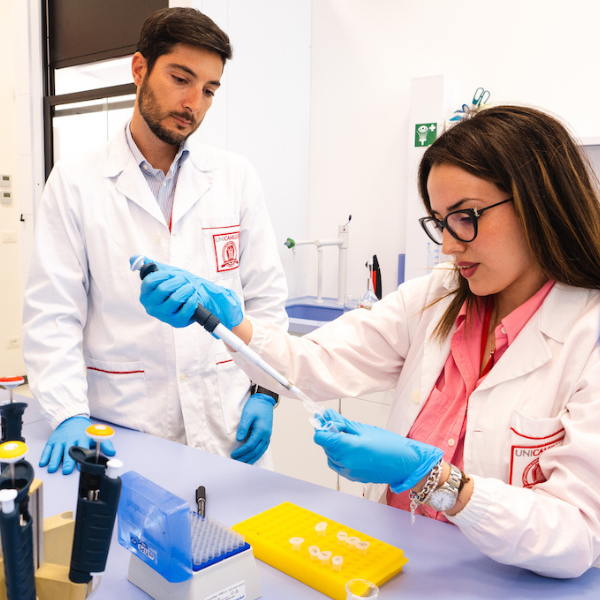New studies funded to treat cancer, HIV, ovarian dysfunctions, and rare genetic and metabolic diseases
“There are 7 Projects of Relevant National Interest (PRINs) for which UniCamillus’ academic excellence has obtained funding from the Ministry of University and Research (MUR)”, commented Rector Gianni Profita. “This is a significant achievement for our University, thanks to the therapeutic and diagnostic significance of these projects”.
“These projects cover a wide range of the life sciences sector”, says Professor Emiliano Maiani, UniCamillus’ Delegate for Research, “demonstrating the extensive expertise of our teaching staff”.
In three of the funded projects, UniCamillus lecturers serve as Principal Investigators, highlighting their guiding role in scientific research.
Combatting HIV and SARS-CoV2 infections
The first project to receive approval, chronologically, is led by Professor Roberta Nardacci, Applied Biology professor at UniCamillus. The project aims to test how the activation of a cellular process called autophagy, through the administration of vitamin D, can improve the immune response to HIV and SARS-CoV-2 infections.
New therapies against breast and thyroid cancer
The second PRIN, conducted by Professor Luigi Maria Larocca (Pathological Anatomy), aims to find diagnostic and therapeutic tools suitable for controlling thyroid cancer.
Also dedicated to cancer treatment is the project led by Professor Monica Benvenuto (General Pathology), which focuses on identifying new biomarkers to predict the risk of bone metastases in women affected by breast carcinoma and to determine the best therapeutic strategy.
The role of stem cells in ovarian disorders and genetic diseases
Professor Francesca Klinger‘s (Histology) PRIN project is also dedicated to women’s health. Its aim is to find targeted solutions for treating female fertility disorders using adipose mesenchymal stem cells.
Professor Gianfranco Peluso (Nutrition and Health Promotion), on the other hand, will investigate the rare genetic mutation disorder IQSEC2, which includes symptoms such as intellectual disabilities, epileptic seizures, and autism-like behaviours. The study will focus on MUSE stem cells.
Treating De Vivo disease and generalised dystonia
Research in the field of metabolic syndromes is also addressed, such as in the case of De Vivo disease, known as GLUT1 deficiency, GLUT1 being an essential protein that facilitates the entry of glucose into cells and whose deficiency heavily impacts the quality of life for those affected. Professor Giacomo Lazzarino (Biochemistry) will develop new techniques to activate this protein.
The role of a protein will also be the focus of the last accepted PRIN project by Professor Sciamanna (Human Anatomy), which will analyse the function of torsin A in the treatment of motor disorders such as generalised dystonia.
“We are extremely proud of our lecturers and their exceptional research, which will contribute to progress in science and the well-being of patients”, says Prof. Maiani. “For this reason, we will continue to support and promote high-quality research at our University”.
UniCamillus researchers will collaborate with colleagues from the Roman universities La Sapienza, Tor Vergata, and Roma Tre, as well as the universities of Naples Luigi Vanvitelli and Federico II, and the universities of Messina, L’Aquila, Catania, Siena, and Pavia. The valuable support of Rome’s Policlinico Gemelli also needs to be acknowledged.

